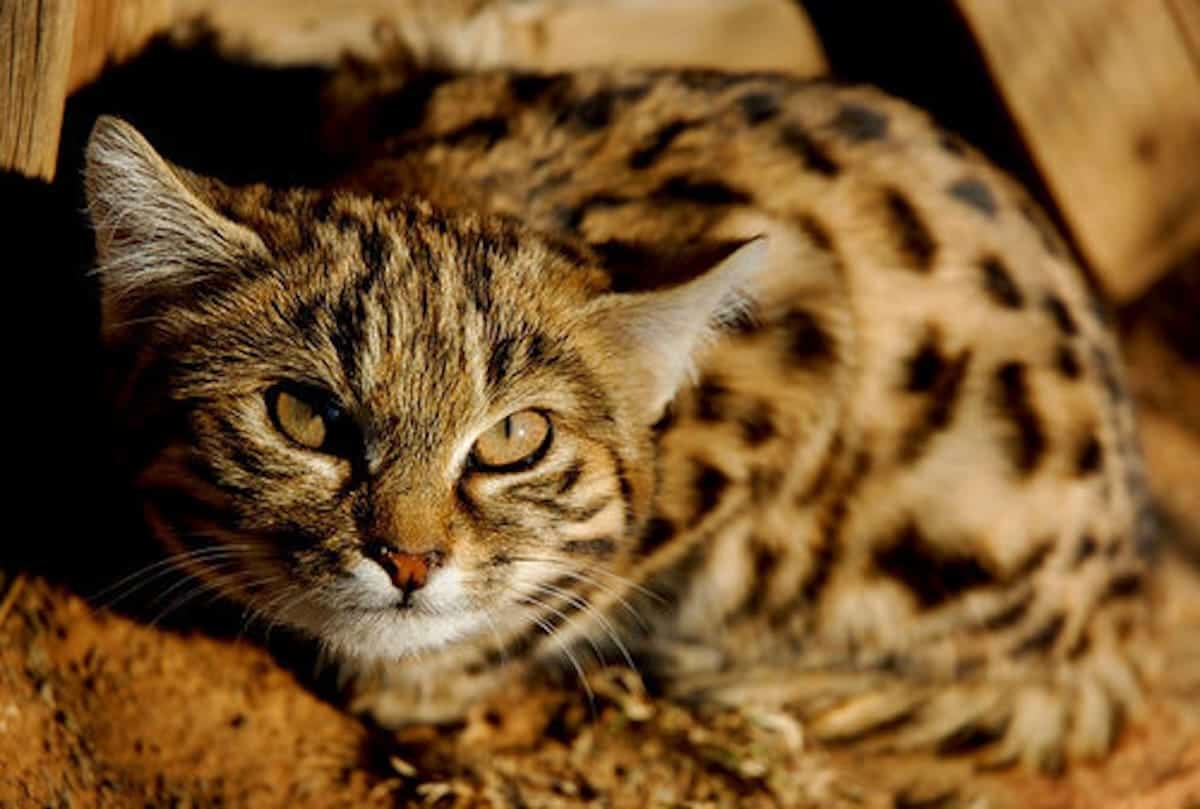Are you wondering if your canine companion can safely enjoy the same tropical treat that you do? Dog owners have been asking, “Can Cats Eat Dragon Fruit?” The answer is yes―in moderation.
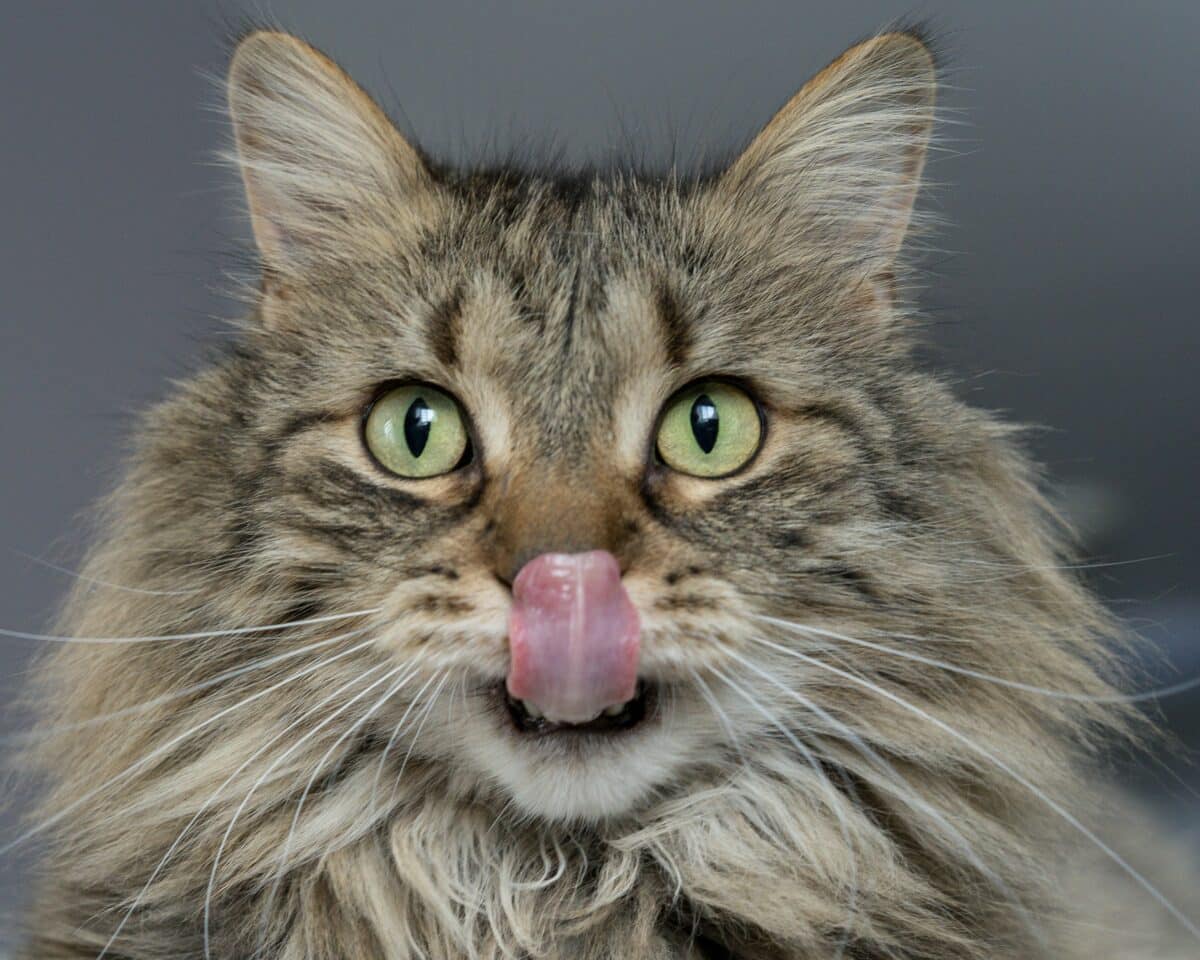
As responsible pet owners, we must know what we should and should not feed our beloved furry friends. It includes knowing whether or not it is safe for our cats to consume certain foods such as dragon fruit.
Dragon fruit is a delicious and refreshing superfruit widely available and popularly consumed for its unique flavor, vibrant appearance, and various health benefits. Native to Mexico and Central and South America, dragon fruit boasts a range of nutritional benefits that make it a tempting treat for cats. So let’s get into it, can cats eat dragon fruit?
We will explore the potential health benefits that your feline friend may experience from consuming this tropical fruit and the potential dangers and side effects that may arise from feeding your cat dragon fruit.
Importance of Knowing What Cats Can and Cannot Eat
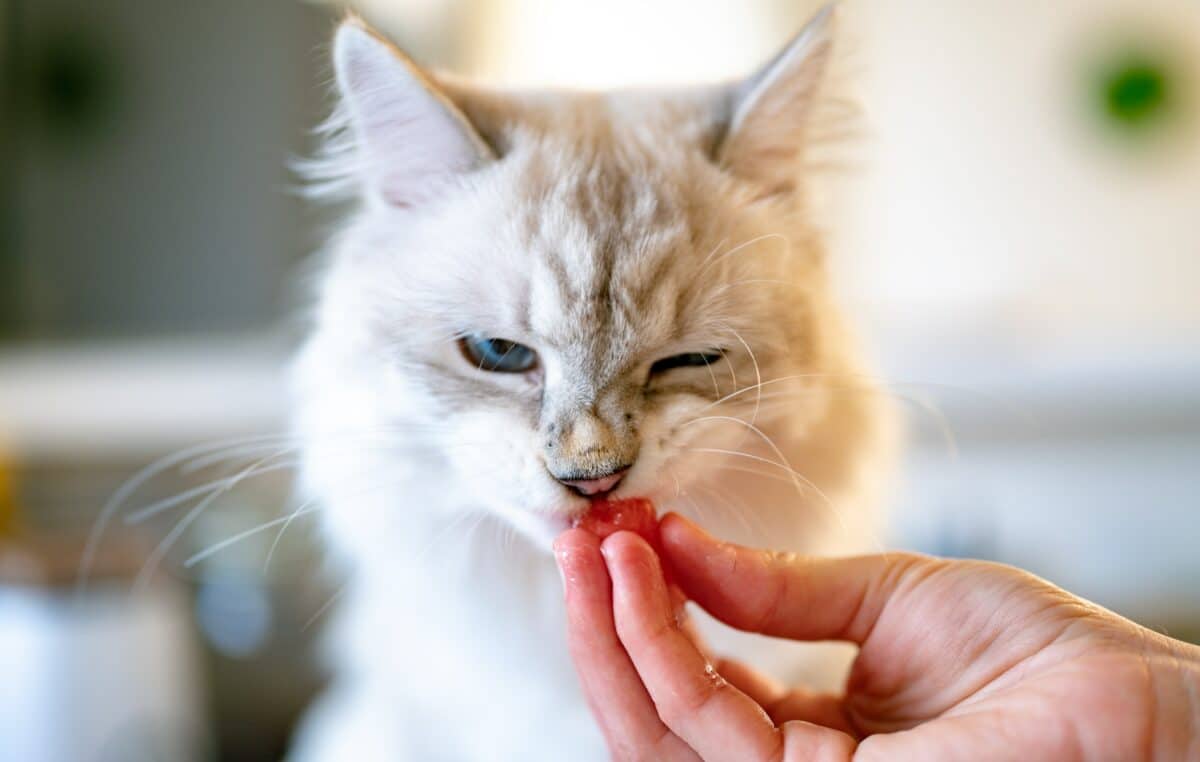
Pet owners need to know what their cats can and cannot eat. While cats are known to be picky eaters, some may still try to nibble on something they shouldn’t. Pets, particularly cats, are more likely to be attracted to foods with strong scents and vibrant colors, so pet owners must know what their pets can and cannot safely consume.
Different types of food may have other effects on cats, so it is essential to be mindful of what your furry friend can digest without any issues. Furthermore, it is crucial for cat owners always to consult a veterinarian when introducing new items into their diet.
All About Dragon Fruit
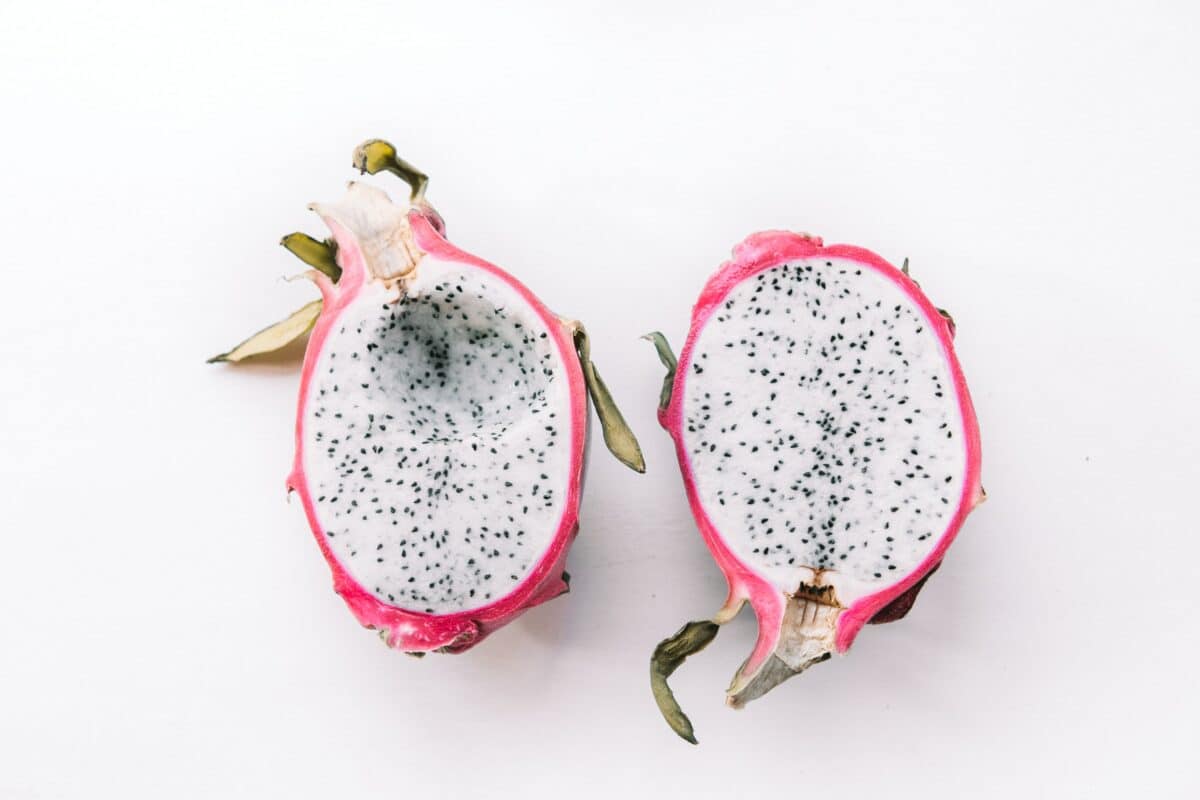
Dragon fruit has bright pink skin with green scales and white inner flesh with black seeds. Dragon fruit contains several vitamins and minerals, including Vitamin C, B-complex vitamins, phosphorus, magnesium, manganese, and iron which provide various health benefits for people and cats when consumed in moderation.
The flesh of the dragon fruit is rich in antioxidants which help combat aging effects such as wrinkles and sagging skin, while the high fiber content aids digestion by helping absorb water in the intestines.
Also, dragon fruit contains amino acids that help keep muscles healthy, boosting immunity levels and assisting in cell regeneration.
Learn more about What Does Dragon Fruit Taste Like?
Benefits Of Feeding Your Cat Dragon Fruit
- Nutritional Value
Dragon fruit is a nutrient-dense food that provides your cat with essential vitamins and minerals. It is abundant in Vitamin C, which helps strengthen your cat’s immune system and increase its ability to fight infections.
Also, dragon fruit contains high levels of dietary fiber, which can help support a healthy digestive tract. This superfruit also contains beneficial enzymes that may aid in improving your cat’s skin and coat health.
- Antioxidant Properties
Another critical benefit of dragon fruit is its antioxidant properties. Antioxidants help to prevent cell damage and boost the overall health of cats. Adding dragon fruit to your pet’s diet could help keep them healthy and provide an extra defense against illness or disease.
- Immune System Boost
Eating dragon fruit can also help boost your cat’s immune system. Vitamin C in this tropical fruit helps promote the production of white blood cells, critical components of the body’s natural defense system against illnesses and infections.
Additionally, dragon fruit encourages the production of antibodies that guard against bacterial and viral attacks on the cat’s body cells.
Potential Side Effects
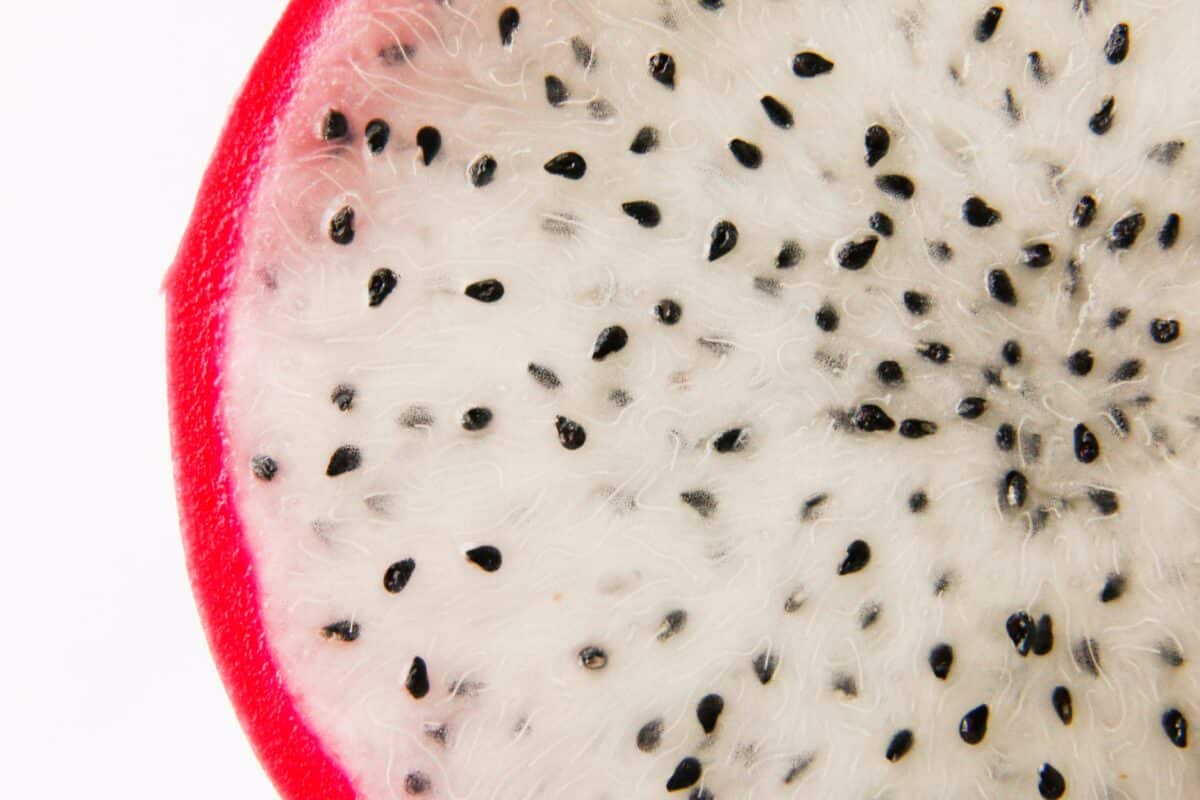
It is essential to consider the potential side effects and risks of your cat eating dragon fruit, despite its potential benefits. Consuming excessive dietary fiber in dragon fruit may cause stomach upset or diarrhea in cats.
Additionally, cats with existing kidney issues or weakened immune systems due to age or illness may experience kidney damage from the high amounts of Vitamin C present in dragon fruit.
Since the impact of dragon fruit on a cat’s digestive system is not fully understood, it is recommended to feed it only occasionally as part of a balanced diet primarily composed of animal proteins and fats. Relying solely on dragon fruit as a regular source of nutrition for cats may not be appropriate, given its higher sugar content than other recommended feline foods.
Risks Associated With Dragon Fruit for Cats
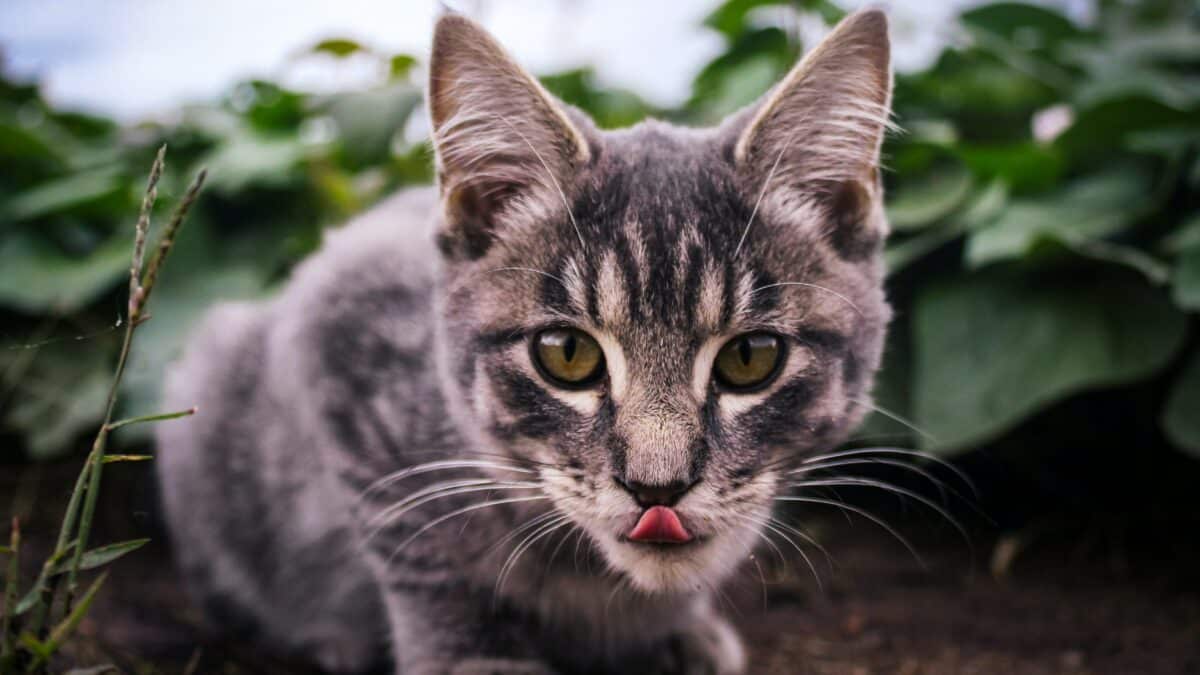
Cats are obligate carnivores, requiring a diet rich in animal-based proteins and fats to meet their nutritional needs. While dragon fruit is a nutritious snack that can provide some beneficial vitamins and minerals, it should never be a substitute for your cat’s regular diet.
Eating too much of any food can potentially cause gastrointestinal distress, leading to diarrhea or vomiting. As such, it is important to only feed your cat small amounts of dragon fruit as a treat and no more than once a week.
- Possible Allergic Reactions
Like with any new food, there is a risk of your cat developing an allergic reaction to eating dragon fruit. Signs of an allergic reaction include difficulty breathing, swelling of the face or muzzle area, hives, excessive scratching or licking of the skin, sneezing, coughing, vomiting, and diarrhea.
If you notice these symptoms after feeding your pet dragon fruit, discontinue use immediately and contact your veterinarian if severe symptoms persist.
- Risk Of Intestinal Blockage
Eating too much dragon fruit can also lead to an intestinal blockage due to its large seed content. If this happens, surgery may be required to remove the blockage, which can be expensive and risky for your pet’s health.
Therefore it is crucial to ensure that all seeds have been removed from the dragon fruit before feeding it to your cat, as even small pieces can obstruct the intestines.
Precautions To Take When Feeding Dragon Fruit To Cats
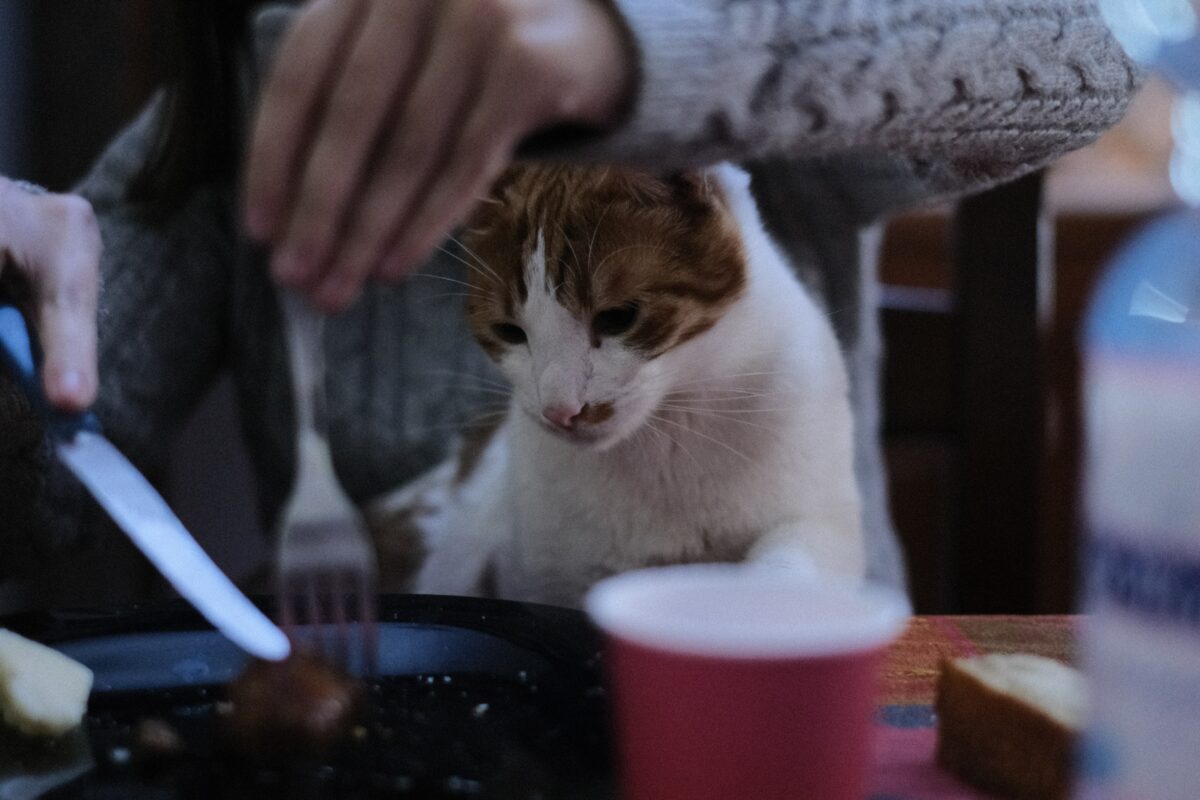
Start with small amounts – Even though dragon fruit has many nutritional benefits for cats, start with small quantities. It’s best first to offer a teaspoon of dragon fruit flesh and see how your cat responds.
Monitor your cat’s reaction – Observe any changes in behavior or physical reactions after consumption. If you notice any adverse reactions, discontinue feeding immediately and consult a vet for further instructions.
Avoid feeding dragon fruit seeds – The dragon fruit seeds may cause choking. It is important to avoid giving large pieces that could cause your cat difficulty chewing and swallowing them properly.
Consult with a veterinarian – Before introducing dragon fruit into your cat’s diet, speak with your veterinarian about the potential risks associated and dosage guidelines.
Conclusion
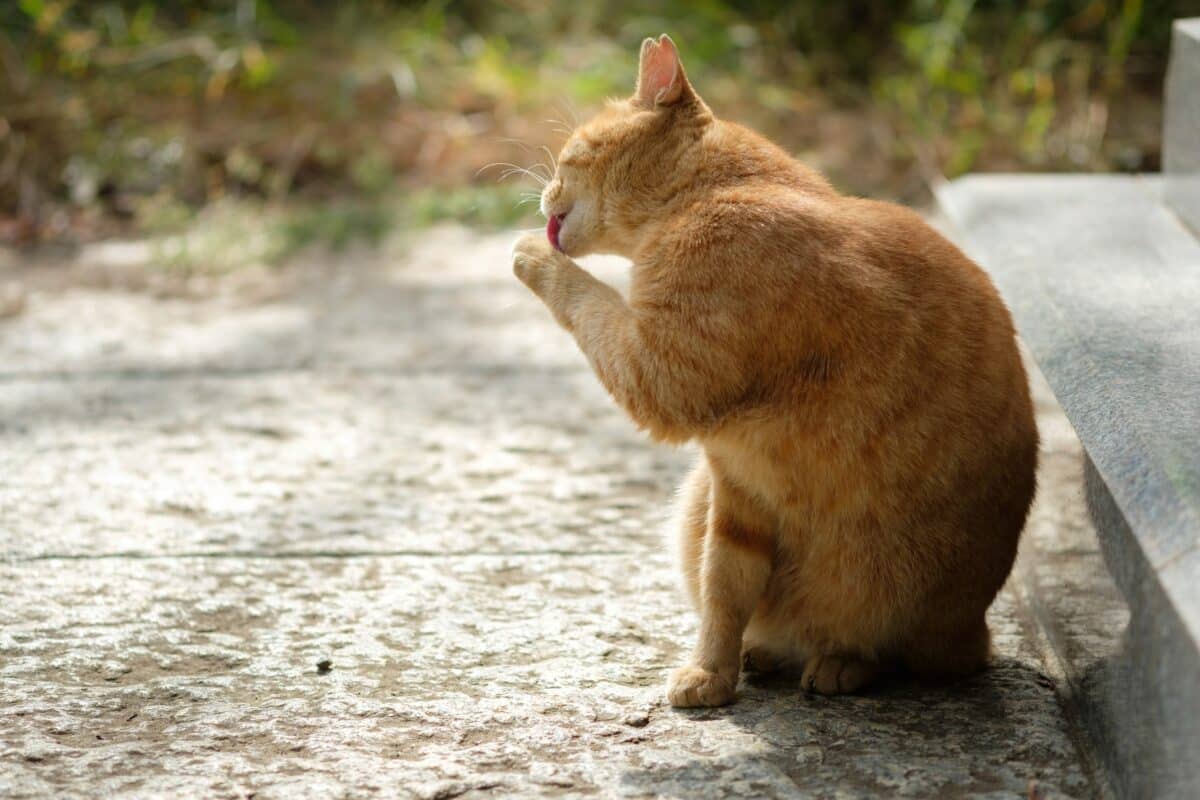
Dragon fruit can be an enjoyable and nutritious treat for cats when consumed in moderation. However, as with any new food, there is always the potential risk of developing an allergy or intestinal blockage. Start by providing small amounts to ensure no adverse reactions or digestive disturbances.
Additionally, if you decide to introduce this exotic superfruit into your pet’s diet, remove all seeds before serving. This is because they may cause a choking hazard and potential obstruction risks when swallowed whole by cats.
Thanks for following along with us! Next up, Can Dogs Eat Strawberries?
- Mom and Daughter Takes Hen and Chicks to the Store in Backpacks - April 24, 2024
- Watch: German Shepherd thinks he’s dying at the grooming salon - April 24, 2024
- Watch: Cats Meet Babies for the First Time - April 24, 2024

